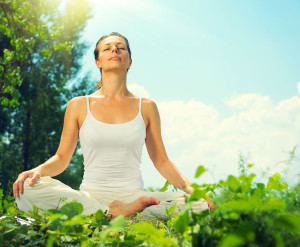 “Yoga is the practice of quieting the mind.”
“Yoga is the practice of quieting the mind.”
With long to-do lists, our lives are anything but quiet. These words, penned by the great sage Patanjali more than 1,700 years ago, offer hope that we can discover peace amid the chaos.
While Patanjali is not the founder of yoga, a practice that dates back to 5000 B.C. and beyond, the Yoga Sutras accredited to him provide much of the foundation for the modern art.
And his message has been substantiated repeatedly in the world of exercise and medicine — that yoga is, indeed, beneficial to our mental well-being. It can provide a foundation for self-discovery, relaxation, and stress management. From meditative breathing to forming relaxing and rejuvenating poses, yoga is a strengthening and melding of body and mind to reduce anxiety and improve overall fitness.
One of the most appealing aspects of this form of exercise is that it can be practiced by almost anyone, anywhere. With a wide array of styles available and modifications to nearly every pose, couch potatoes and professional athletes alike can garner the benefits touted by yoga gurus everywhere.
Those benefits are not limited to the mental realm, but are said to stretch to total body conditioning, flexibility, injury prevention, and physical well-being. In fact, a recent study suggests that yoga is as effective in reducing cholesterol levels and the risk for heart disease as aerobics, cycling, or brisk walking.
So, put on your favorite yoga pants (even a comfy pair of sweats will do) and try some basic yoga poses, right in your own home or yard. You’ll be glad you did.








